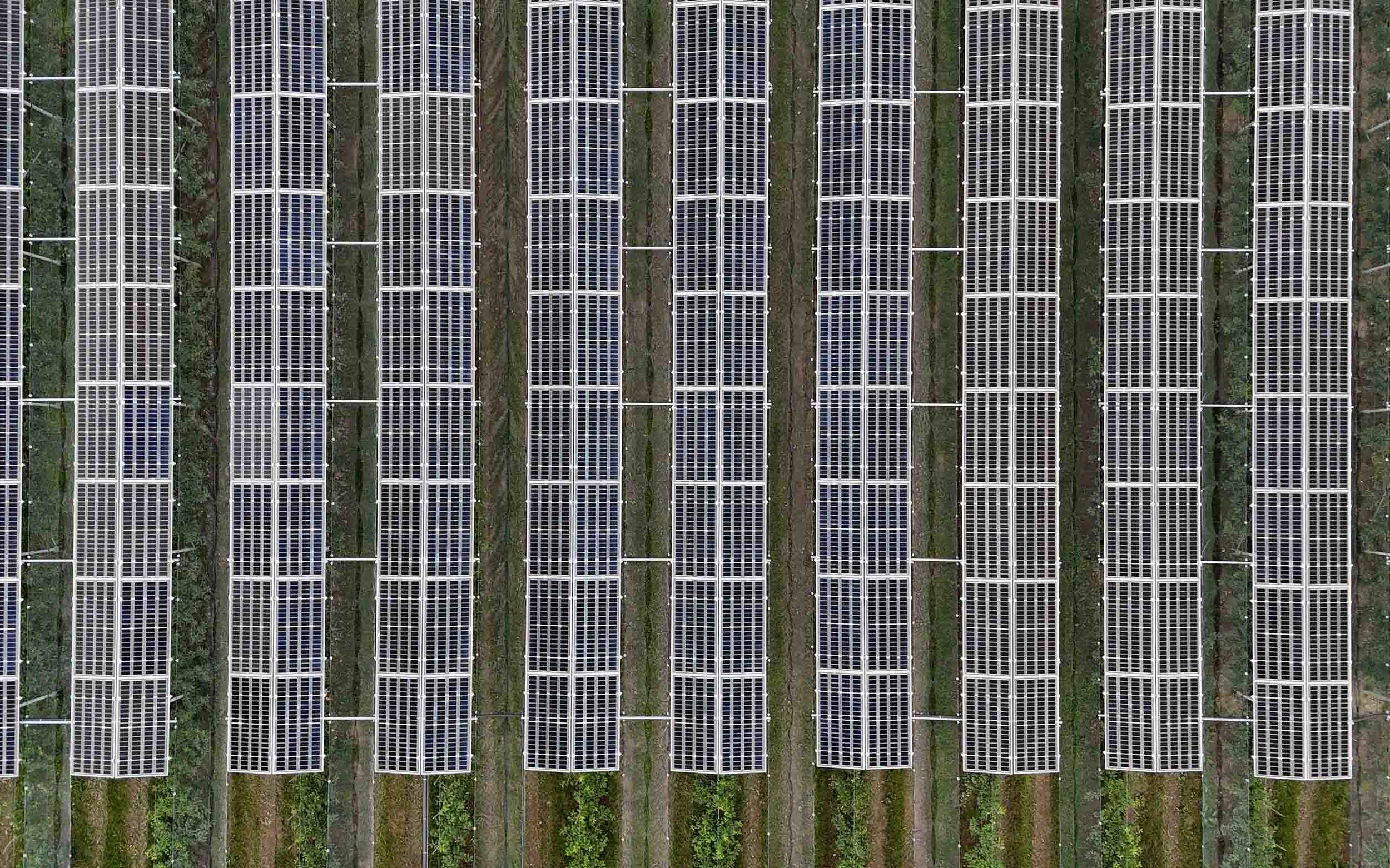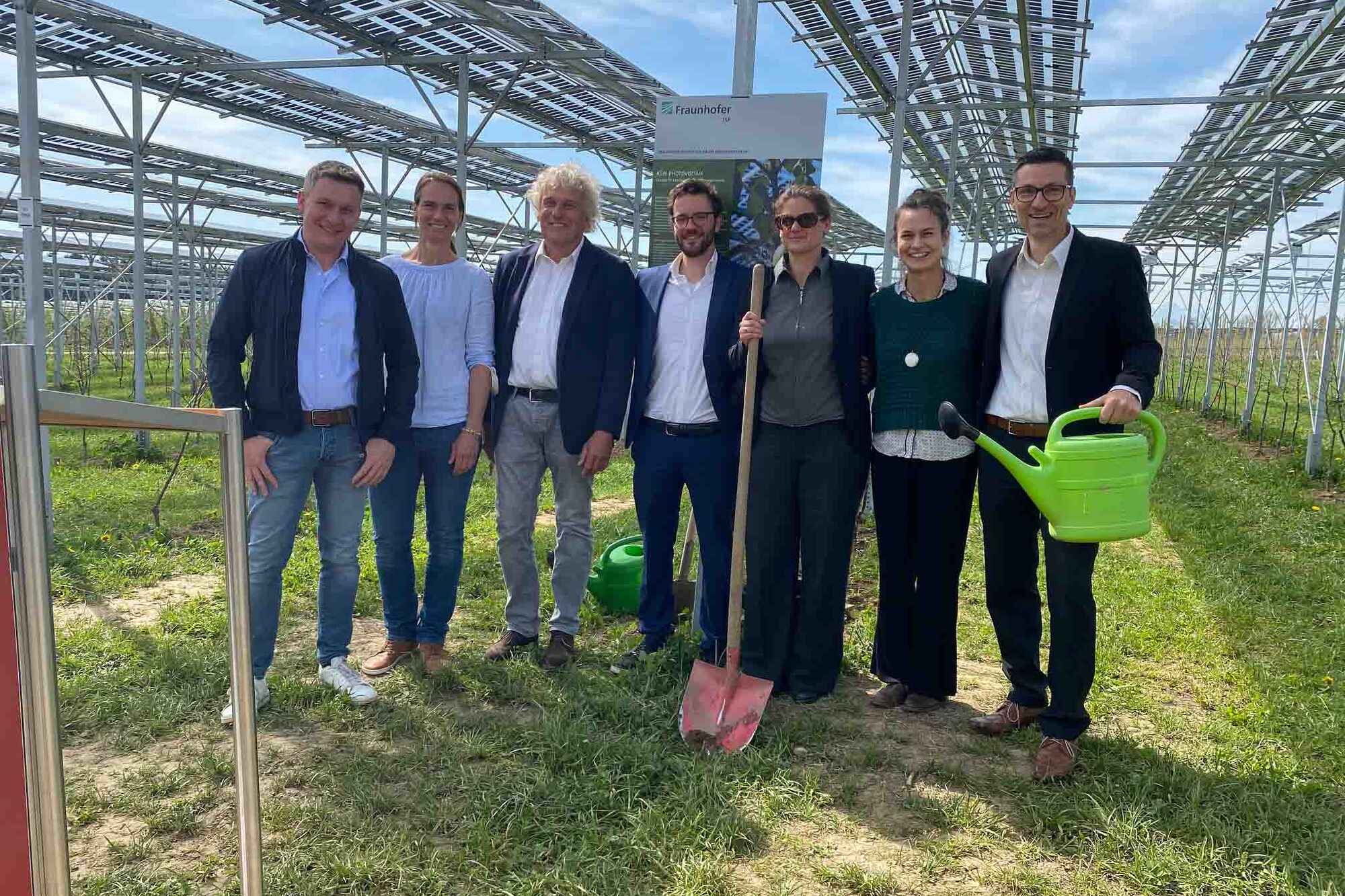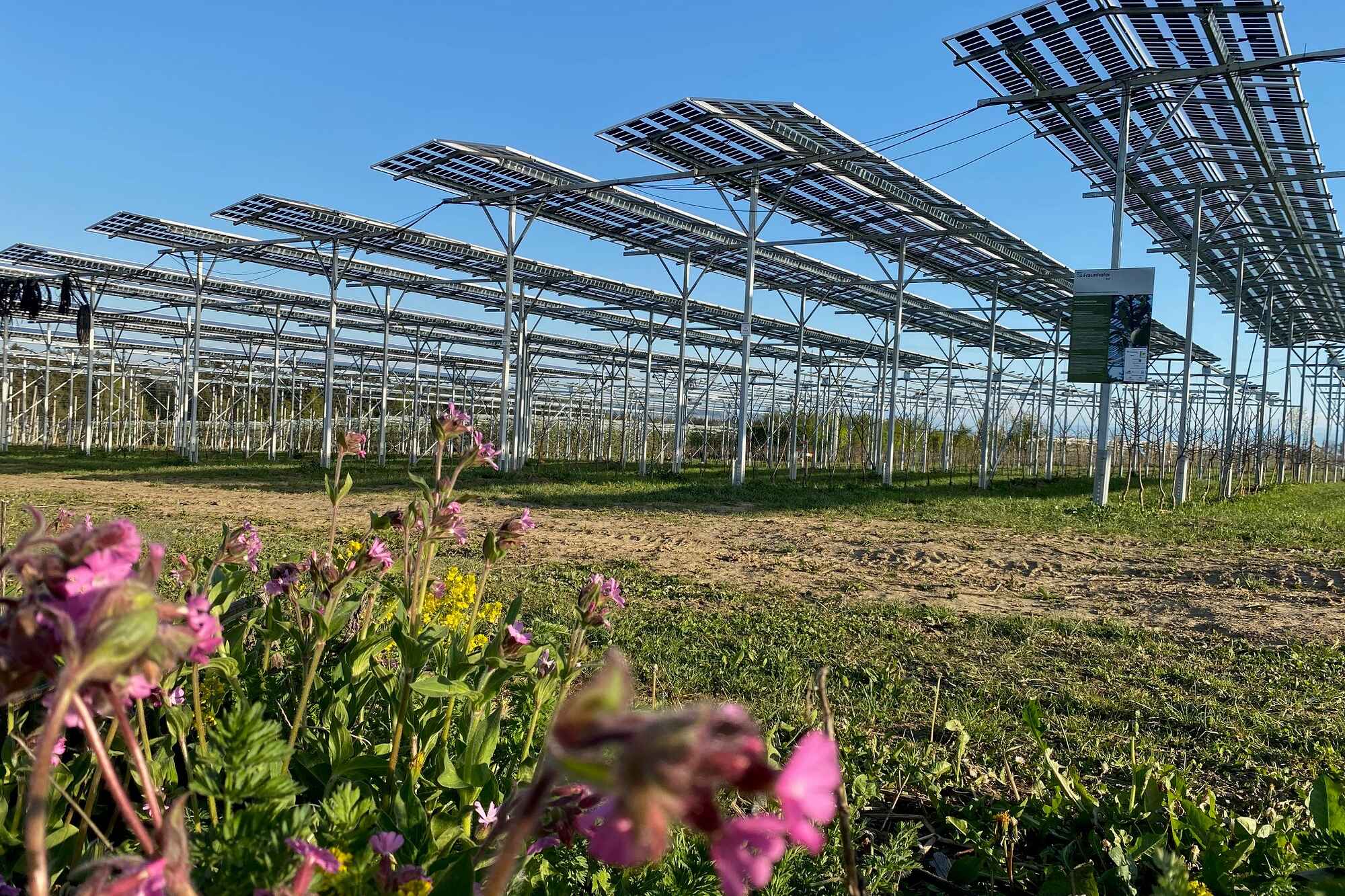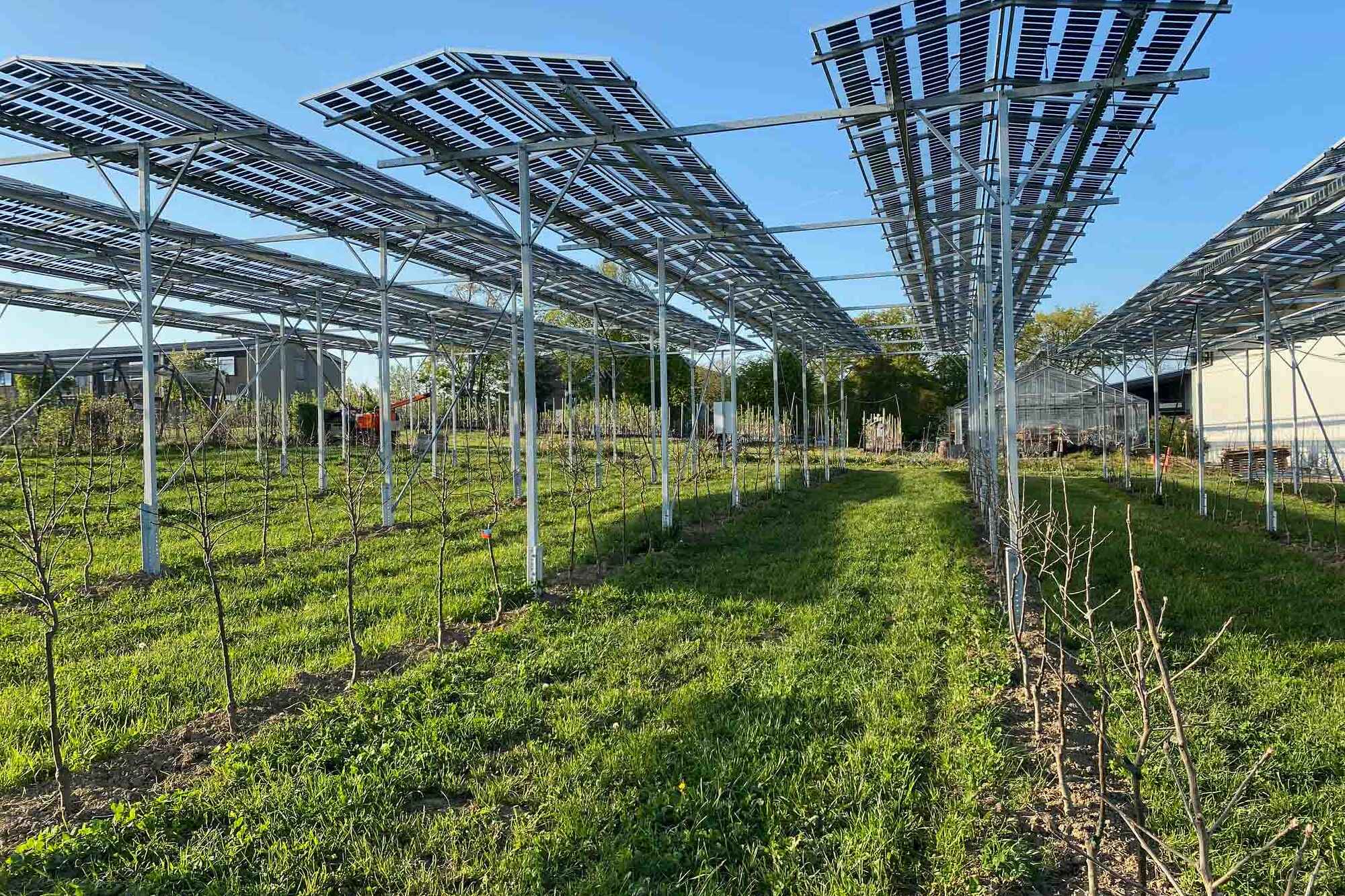
Bavendorf Agri-PV
Research Agri-PV in collaboration with KOB and Fraunhofer Institute
The Agri-PV project is a pioneering research initiative exploring the combination of photovoltaic energy and apple farming at the “Kompetenzzentrum Obstbau-Bodensee”(KOB) in Bavendorf. The installation consists of two solar power systems with a total capacity of 226 kWp, placed directly over an apple orchard and covering about two-thirds of the growing area. These solar panels not only generate clean energy but also provide a protective layer for the apple trees. Research simulations indicate that 70% of the required sunlight for apple cultivation still reaches the crops. Over the next 4-5 years, the project will closely monitor the effects of the solar installation on yield and quality. Additionally, the partial coverage provided by the solar panels is expected to help reduce pesticide use. Supported by the Ministry of Environment and Agriculture of Baden-Württemberg and coordinated by the Fraunhofer Institute, this project aims to set new standards for sustainable agriculture.
The project aims to assess the potential and challenges of agrivoltaics while advancing new prototypes for pome and soft fruit cultivation. Its focus is on ensuring safe, high-quality fruit production alongside solar energy generation, promoting agrivoltaics as a sustainable solution for agriculture and renewable energy.
Agri-PV systems provide a range of benefits by integrating agricultural production with renewable energy generation, boosting environmental sustainability while improving economic efficiency.
Agri-PV makes it possible to grow crops and generate solar power on the same land, utilizing resources more efficiently.
The raised solar panels offer a layer of defense against adverse weather like rain, hail, and storms, helping safeguard crops from damage.
By balancing sunlight exposure and minimizing weather extremes, Agri-PV supports healthier crops with fewer instances of issues like sunburn or frostbite.
The partial shading from the solar panels helps control moisture, reducing the risk of mold and pests, which in turn decreases the reliance on pesticides.
Power generated by the solar panels can be used for farm operations, reducing energy expenses, while excess energy can be sold to the grid for extra income.
The Bodensee project includes a 4-5 year research study to explore the impacts on fruit yield and quality, contributing valuable data for the future of sustainable agriculture.


